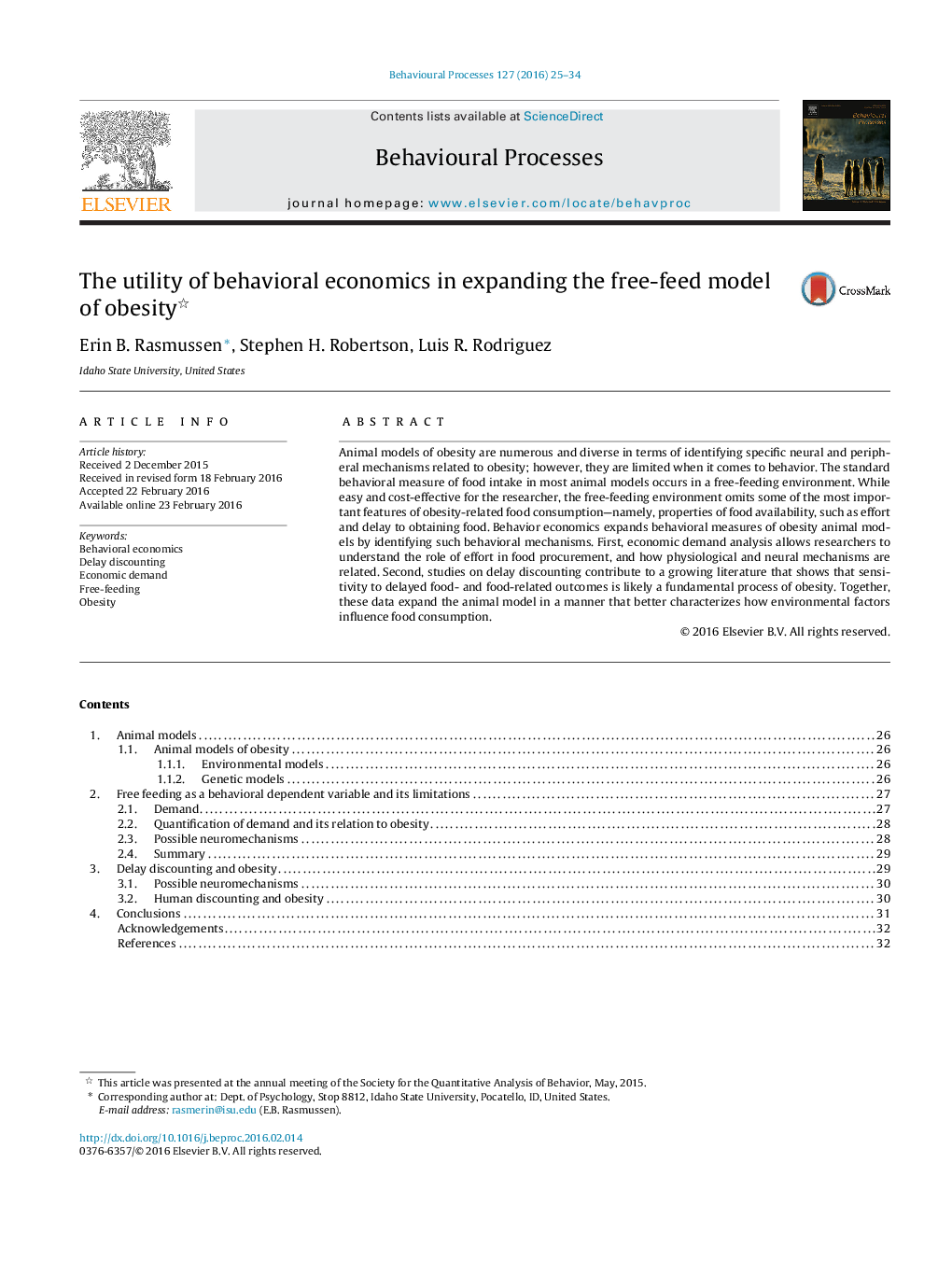| کد مقاله | کد نشریه | سال انتشار | مقاله انگلیسی | نسخه تمام متن |
|---|---|---|---|---|
| 2426433 | 1553153 | 2016 | 10 صفحه PDF | دانلود رایگان |
• Animal models of obesity are numerous and diverse in terms of modeling physiological systems, but are behaviorally simple.
• Hyperphagia is the most frequently used behavioral dependent variable, and is highly likely in a free-feeding environment.
• Studies from behavioral economics expand obesity research by characterizing behavior in conditions under which food is effortful and delayed.
• Behavioral economic studies better characterize food consumption related to obesity.
Animal models of obesity are numerous and diverse in terms of identifying specific neural and peripheral mechanisms related to obesity; however, they are limited when it comes to behavior. The standard behavioral measure of food intake in most animal models occurs in a free-feeding environment. While easy and cost-effective for the researcher, the free-feeding environment omits some of the most important features of obesity-related food consumption—namely, properties of food availability, such as effort and delay to obtaining food. Behavior economics expands behavioral measures of obesity animal models by identifying such behavioral mechanisms. First, economic demand analysis allows researchers to understand the role of effort in food procurement, and how physiological and neural mechanisms are related. Second, studies on delay discounting contribute to a growing literature that shows that sensitivity to delayed food- and food-related outcomes is likely a fundamental process of obesity. Together, these data expand the animal model in a manner that better characterizes how environmental factors influence food consumption.
Journal: Behavioural Processes - Volume 127, June 2016, Pages 25–34
